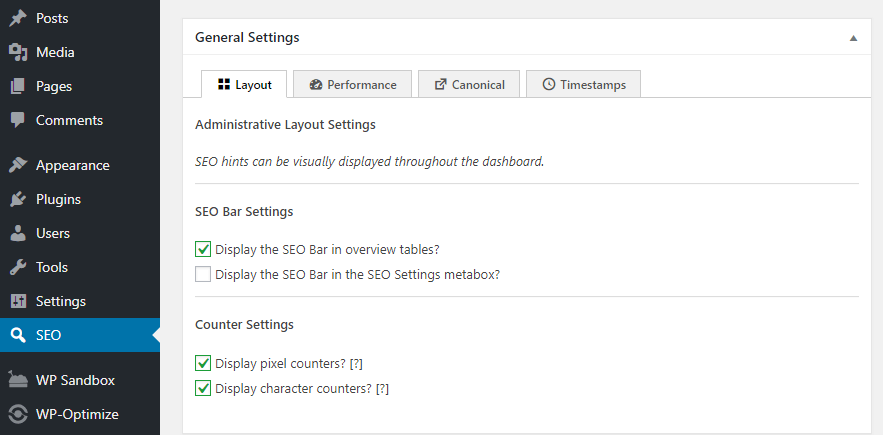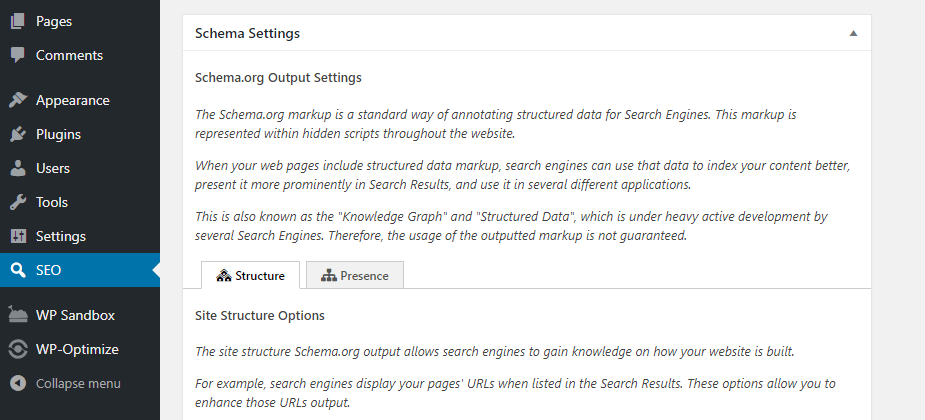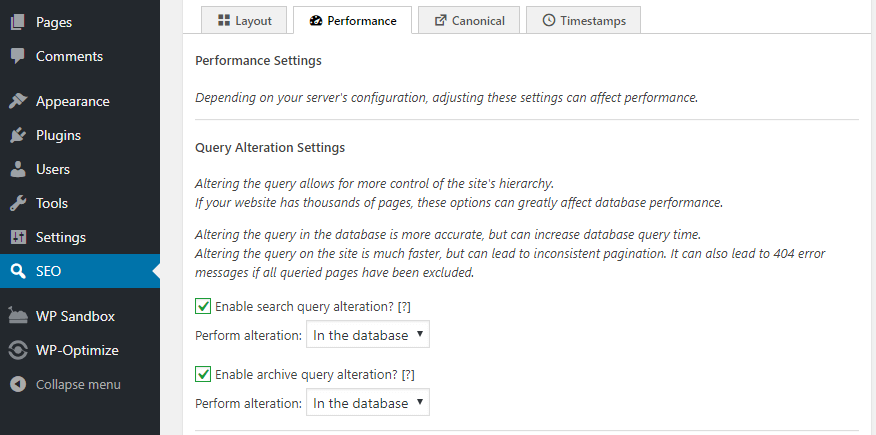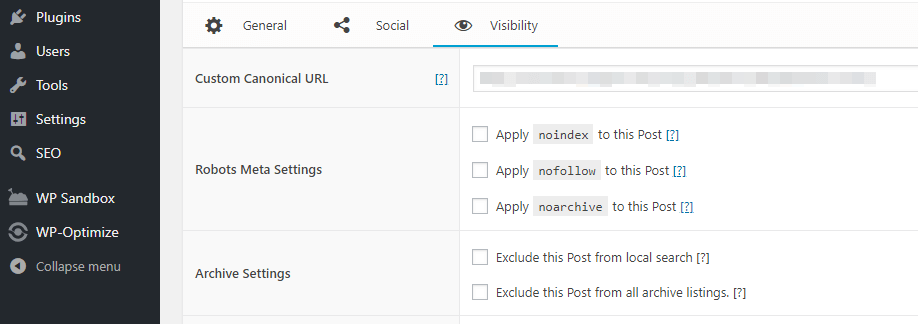There are a lot of WordPress Search Engine Optimization (SEO) plugins, but only a few of them grab the spotlight. Yoast SEO, for example, is the name that comes to most people’s minds, but our tests show it’s not without downsides, such as occasionally slowing your website down.
There are plenty of other excellent plugins to choose from, however. One name that’s been making a lot of noise lately is The SEO Framework. In this article, we’re going to talk about some of the reasons why you might want to look for an alternative SEO plugin. We’ll then introduce you to our pick for today and talk about how it compares to other plugins in the same category.
Let’s check it out!
Why You Might Want to Look for a Yoast SEO Alternative

Yoast SEO is an excellent plugin, but it’s not your only option.
First off – let’s preface this section by saying we think Yoast SEO is an excellent plugin. It does its job well, and the way it enables you to check out your keyword usage and your posts’ readability is excellent. However, no single plugin is perfect, and it’s always a good idea to check out if there are alternatives that can better serve your website.
Given this, it’s important to note Yoast SEO can be a bit of a resource hog. Our recent piece on WordPress plugin performance found it’s one of the plugins that can impact your loading times the most. Of course, any decent web host should be more than able to minimize the plugin’s impact, but it’s still something worth considering.
In addition, plugins like Yoast SEO shine due to the sheer number of settings they provide you. However, having too many configuration options can sometimes be a hassle for beginners, or those looking for a simple solution. In other words, if you care about SEO but you’d like to use a less overwhelming plugin, you should look into the alternatives. We’ve previously talked about All in One SEO Pack, which is also an excellent tool.
For this article, we’re going to focus on a newer solution many seem to like – The SEO Framework.
An Introduction to The SEO Framework

The SEO Framework is an extendable plugin with a goal of helping your content rank better in search engines. It offers many of the familiar features you’d expect from other SEO plugins. For example, it enables you to set custom titles and meta descriptions for your content, and provides you with an overview of where your content is lacking when it comes to SEO.
However, one of the most unique aspects of The SEO Framework is its extendability. You can set up a companion plugin called Extension Manager, which helps you implement additional functionality to the parent tool. Some of them include options to help you focus on specific keywords, set up local business information, and much more.
More importantly, the plugin emphasizes simplicity. It’s a good option for people with little SEO experience and easy to pick up, but it also includes enough options to let you dive deeper. Overall, it feels like a very mature plugin – no wonder it’s become popular in recent times.
Key Features:
- Provides suggestions on how to tackle your SEO efforts.
- Offers highly configurable settings.
- Lets you customize the title, meta description, and Open Graph settings for the content you’d like.
- Provides advice on which areas of your SEO need more work.
- Works with custom post types.
Price: The plugin is free, but some extensions are paid | More Information
How The SEO Framework Compares to Other Similar Plugins
In this section, we’re going to talk about ease of use and included features. Let’s start by taking a look at the settings The SEO Framework offers you. Once you enable the plugin, you’ll get access to a new SEO tab on your dashboard, which will initially take you to the plugin’s settings screen:

You’re probably familiar with most of these settings. The SEO Framework enables you to tweak your content’s layout, title settings, meta description and social media options, and even how Schema markup is used:

As far as ease of use goes, the plugin does an excellent job of explaining what each feature does. More importantly, the default configuration is good enough to leave alone for the most part. However, there’s more than one page of settings to cover. One of the things that drew our attention to The SEO Framework in the first place were claims it provided better performance than Yoast SEO. As such, the plugin includes a few settings dedicated to improving performance:

It’s a nice touch, although the plugin warns you probably won’t see a big difference in most cases. In our own experience, we can say the plugin does feel less sluggish than Yoast SEO, but your mileage may vary. Overall, we can say the plugin is competitive with other SEO plugins such as Yoast and All In One SEO Pack when it comes to configuration options.
Moving on, let’s check out how the plugin tackles on-page SEO. Let’s start by taking a look at your All Posts tab. You’ll notice there’s now an additional SEO column, which includes color-coded scores for different aspects of each post’s SEO:

As you might expect, green stands for good and red for bad. The above example has several aspects we can improve on, and we know what they are via tooltips, which is a neat feature. When we next go into the content editor, you’ll see a new Post SEO Settings metabox at the bottom of the screen:

Unlike Yoast SEO, this section doesn’t include keyword optimization options or readability scores. However, it does offer options to change your post title and meta descriptions, and social media settings:

There are also options to change your robot.txt settings for each post or page, or set up custom redirect URLs:

The main turnoff here is the lack of keyword information. This feature within Yoast SEO can be incredibly helpful if you like visual aids. However, if you’re confident in the way you use keywords, it may be superfluous to your requirements. You can add similar features using The SEO Framework’s Focus extension. However, some people might prefer if it were included out of the box.
Overall, we can say confidently The SEO Framework provides an experience that’s comparable in polish to Yoast SEO. It doesn’t take as much of a toll on your site’s performance either. This alone could make it a better option for small websites with less of an SEO concern.
When it comes to features though, Yoast SEO is still king. However, it’s a close call. The extendability of The SEO Framework will also appeal to those who like module-based systems. In short, if you’re in the market for a new SEO plugin, this one definitely deserves your attention.
Conclusion
One of our favorite things about WordPress is the high number of options you have when it comes to plugins, regardless of what functionality you want to add to your website, including SEO. Despite the fact a few plugins take most of the spotlight, there are some noteworthy up and comers to be aware of.
Overall, The SEO Framework provides an excellent experience. It offers a wealth of features and is easy to use. We’d say it’s pretty close to catching up to Yoast SEO as far as features go, despite some out of the box omissions. If you’re looking for a new solution, this one is well worth considering.
Do you have any questions about which SEO plugin you should use on your website? Let’s talk about them in the comments section below!
Article image thumbnail by theromb / shutterstock.com.
The post The SEO Framework: A Viable Yoast SEO Alternative appeared first on Elegant Themes Blog.
